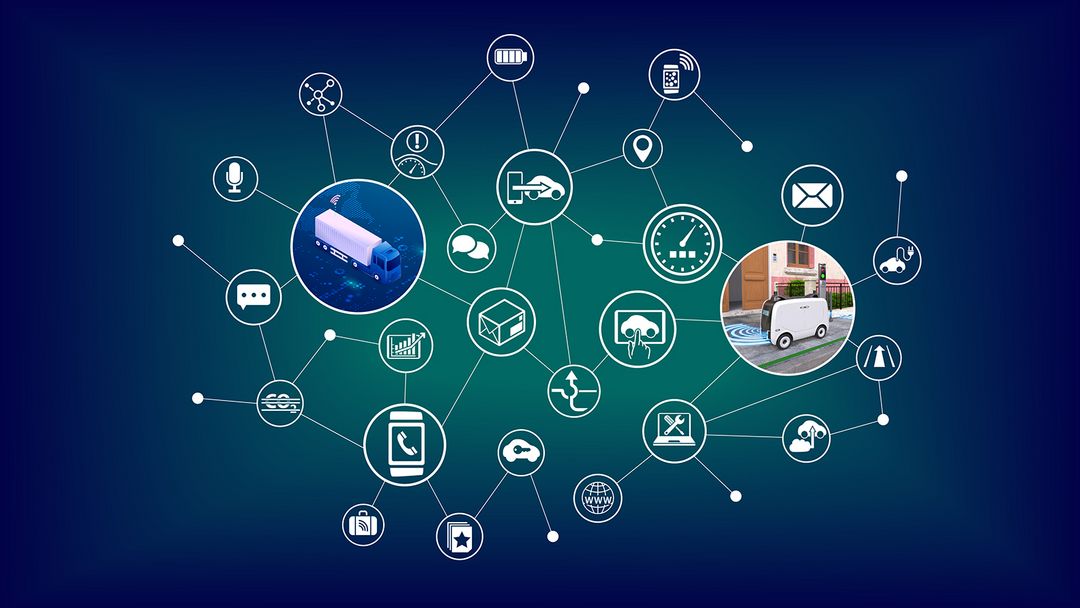The Gaia-X 4 ROMS (Remote Operation for Automated and Connected Mobility Services) project starts as part of the Gaia-X 4 Future Mobility project family and is funded by the German Federal Ministry of Economics and Climate Protection (BMWK). In addition to a use case in the project related to public transport, data-based fleet management in logistics is being considered in the "Smart Managed Freight Fleet" use case. Novel, openly navigating vehicles could distribute packages from urban depots. These depots are connected to the so-called main haulage, the route between depots outside the city. With the system, for the first time, the partners are aiming for a solution that links these transport worlds, which are often considered separately. Route planning of the autonomous vehicles, remote operation, such as maintenance from a distance, and capacity planning are aimed to run independently and be controlled by real-time data.
With additional information becoming available to all parties involved, long waiting times for customers can be avoided using a self-scheduled delivery time for drop-off, and the utilization of transport vehicles can be increased. The project will produce services for the Gaia-X register that will be open source for users.
"Logistics is an important function across all economic sectors and a suitable application field for AI-driven service innovations. With Gaia-X 4 ROMS, we are participating in a large-scale initiative to systematically assess the requirements of the industry with its still divided data space and to work towards end-to-end AI applications," explains Prof. Dr. Oliver Thomas, head of the DFKI research department Smart Enterprise Engineering.
Researchers in the field will focus on an empirically based concept and the feasibility for implementing the multi-agent system, the AI component on which the project is based. Mobile parcel stations, workshops, depots, trailers and swap bodies are represented via software programs. These so-called agents communicate independently with each other and coordinate the processes of an object. If a parcel is to be shipped, they decide whether certain transport orders are to be accepted, when these orders are to be executed and give corresponding instructions to the respective people and machines.
The consortium leaders of the project with its 18 partners are the German Aerospace Center (DLR) and the IT service provider Arvato Systems. The project will run until September 2024. Professor Thomas' team is also investigating data ecosystems and smart services in other projects, for example in the context of smart living (ForeSight project), in mechanical engineering (RePARE project) and in regional SMEs (DBWS project).

